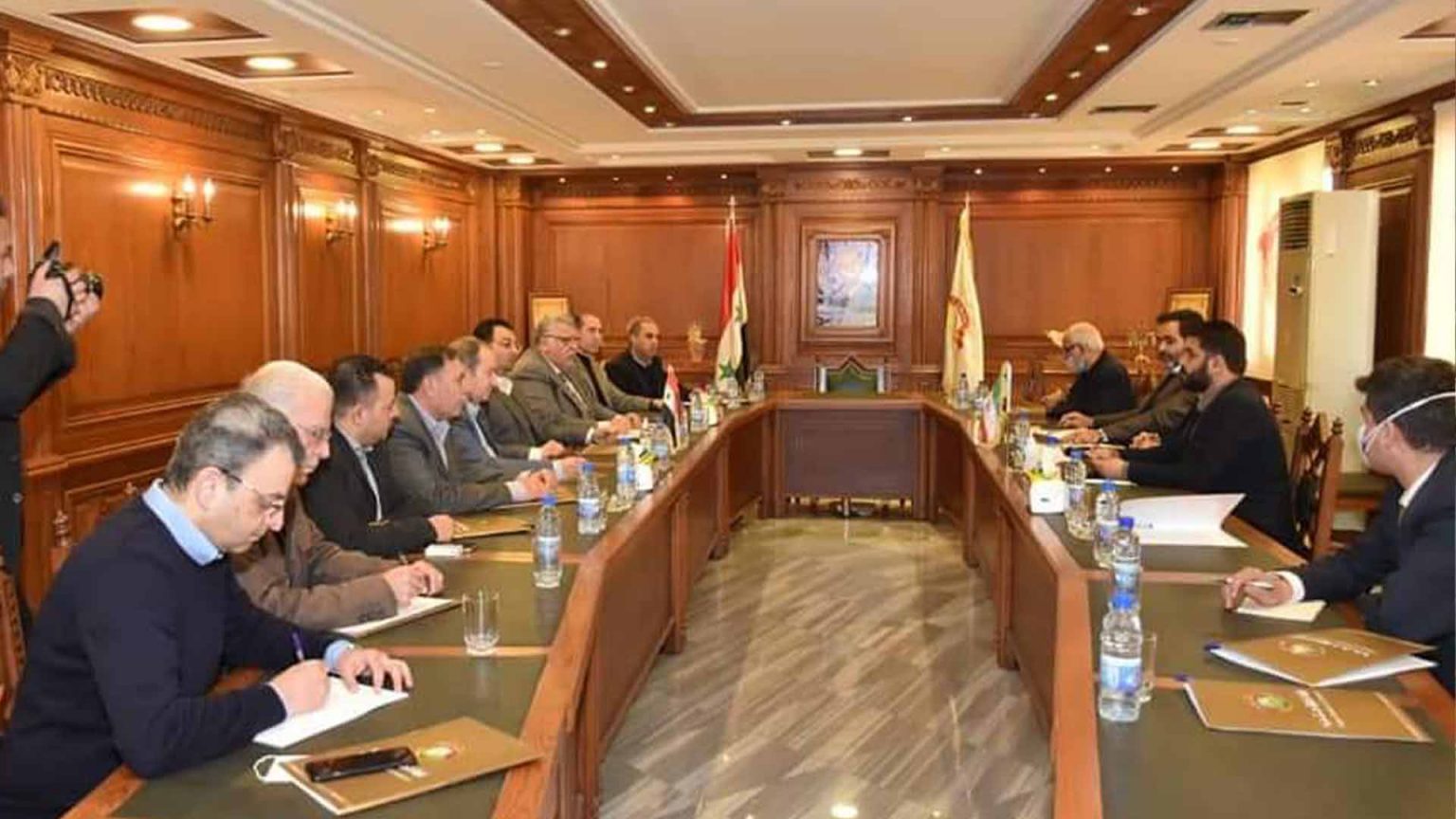Iranian delegation in Aleppo reveals economic ties between Syria and Iran
ALEPPO, Syria (North Press) – On Saturday, an important Iranian delegationvisited northern Syria’s Aleppo in a step to expand Tehran’s economic influence in the region.
Head of the Iranian-Syrian Joint Chamber of Commerce Keyvan Kashefi headed the delegation, along with a number of heads of Iranian companies and traders.
The delegation held intensive meetings in the Commerce and Industry Chambers in Aleppo.
The visit comes within the framework of helping the Damascus government confront the economic crisis and break the western blockade of Syria, according to Kashefi, who met Aleppo’s merchants and industrialists.
Secretary of the Aleppo Chamber of Commerce Fadl Qatirji told North Press that large Iranian companies will support destroyed Syrian companies and factories for reconstruction.
He indicated that work is underway to establish a land route for transport and freight operations, in cooperation with Iraq.
In June, Iran said it would spare no effort in reducing the economic pressure on Syria under the Caesar Act.
“We are confident that security and stability will return to Syria,” Iranian vice president Eshaq Jahangiri said at the time.
“We will work to implement the bilateral agreements signed between Tehran and Damascus in the Joint Economic Committee and the Strategic Relations Committee as soon as possible,” he added.
On Monday, director of the Syrian-Iranian Commerce Exchange Office Jamal Allam, told North Press that there are difficulties in transporting goods between Syria and Iran due to the customs procedures imposed by the Syrian government on imported goods.
The delegation’s visit, which is the first to Aleppo since the outbreak of the Syrian war, comes “to achieve economic benefits in the markets of Aleppo”.
It coincided with declining trade between Damascus and Tehran in relation to the prominent military role in Syria, especially in Aleppo.
In July, President of the One Nation Center for Intellectual and Strategic Studies, Fadi al-Said, said Iranian support for Syria will not be limited to the military side only, and the military agreement is the beginning of economic, commercial, medical, and scientific agreements.
Iran seeks to expand its influence in Syria, especially after the Syrian government provided it with economic facilities during 2019.
The most prominent event in this relationship was the signing of a long-term economic cooperation agreement with Iran in various fields, including the banking, financial, and reconstruction sectors, on December 28, 2019.
In the same month, another memorandum of understanding was signed stipulating the construction of 30,000 residential units in most Syrian cities.
In order to facilitate Iran’s participation in Syrian economic projects awaiting investment, the Joint Syrian-Iranian Supreme Committee, which started its work in early 2019, was established, and the joint Syrian-Iranian bank with a 60% contribution from Iran.
Damascus and Tehran witnessed economic and investment exhibitions in the second half of 2019, which attracted companies operating in reconstruction.
The most prominent of these activities was Damascus International Fair in its 61st session, which was organized in September 2019, in which Iran participated with about 60 companies, most of which work in the field of reconstruction, as the largest pavilion participating in the exhibition.

